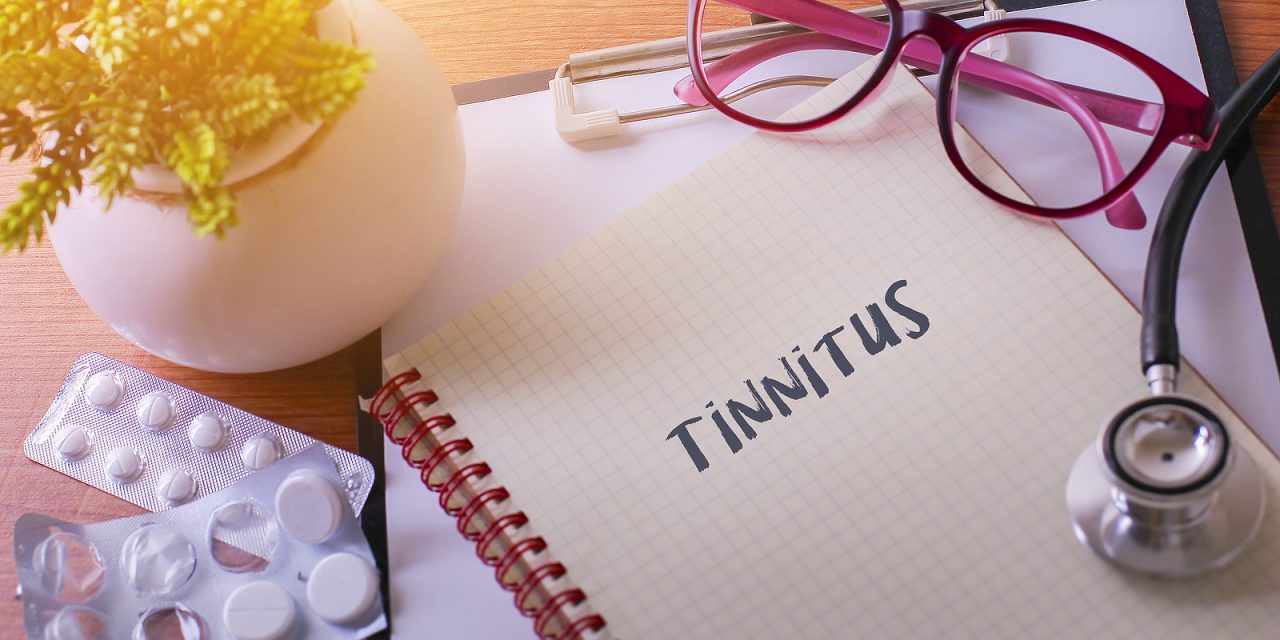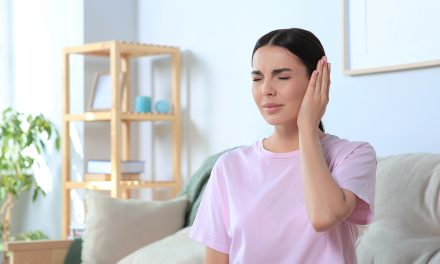Tinnitus is a common audiological condition characterized by persistent ringing, buzzing, or hissing sounds in the ears without an external source. It can be a bothersome and disruptive experience for some individuals, impacting daily life and well-being. Although there is no universal cure for tinnitus, there are a variety of techniques and treatments available to help relieve the symptoms or even provide instant relief for some cases.
Understanding the triggers and assessing the severity of tinnitus are essential steps to determining appropriate treatment options. A medical evaluation and diagnosis by a professional can rule out any underlying health issues and recommend a suitable course of action. Options for immediate relief, lifestyle modifications, and professional treatments – including sound therapy and psychological management – can all be utilized to address tinnitus symptoms and improve the quality of life for those affected.
Key Takeaways
- A medical evaluation is crucial in understanding the cause of tinnitus and recommending treatments
- Immediate relief techniques, lifestyle changes, and professional treatments can help alleviate symptoms
- Sound therapy, psychological management, and alternative therapies offer various approaches for coping with tinnitus
Understanding Tinnitus
Causes and Symptoms of Tinnitus
Tinnitus is a perception of sound in the ears or head when there is no external source. It can manifest as ringing, buzzing, hissing, or whistling sounds. Some common causes of tinnitus include exposure to loud noise, age-related hearing loss, earwax blockage, and ear or head injuries. It can also be a symptom of certain diseases, such as Meniere’s disease, or an issue with the auditory nerves.
Symptoms of tinnitus can range from mild to severe and may interfere with daily life. People with tinnitus often experience difficulty in concentrating, sleeping, and maintaining a conversation with others. It is crucial to manage these symptoms as early as possible to avoid further complications.
Types of Tinnitus
There are two main types of tinnitus:
- Subjective tinnitus: This is the most common type of tinnitus, experienced only by the person with the condition. It may be caused by problems in the outer, middle, or inner ear, or with the auditory nerves or the part of the brain that processes sound.
- Objective tinnitus: This type of tinnitus is much rarer and can be heard by a healthcare professional during an examination. It is usually caused by issues with blood vessels, muscles, or bones in the ear.
Common Myths About Tinnitus
Myth 1: Tinnitus is a disease itself.
Fact: Tinnitus is not a disease, but rather a symptom of an underlying condition, such as age-related hearing loss, ear injury, or a circulatory system disorder.
Myth 2: There is nothing you can do to manage tinnitus.
Fact: There are various treatment options available to help manage tinnitus, such as Tinnitus Retraining Therapy and sound therapy.
Myth 3: Tinnitus is an imaginary condition.
Fact: Tinnitus is a very real issue for those who experience it. It can have a significant impact on daily life and is recognized by medical professionals as a legitimate symptom of an underlying problem.
By developing a clear understanding of tinnitus, its causes, types, symptoms, and common myths, you will be better equipped to manage tinnitus effectively and seek appropriate treatment options.
Medical Evaluation and Diagnosis
When to See a Doctor
If you are experiencing persistent tinnitus, it is important to consult with a healthcare professional, such as a doctor or audiologist. They can help determine the cause and severity of your tinnitus and recommend appropriate treatment options. Some indicators that it’s time to see a doctor include:
- Tinnitus lasting more than a week
- Sudden onset of tinnitus without an apparent cause
- Severe tinnitus interfering with daily activities
- Tinnitus accompanied by hearing loss or dizziness
Tests and Assessments
A comprehensive evaluation is necessary for healthcare professionals to accurately diagnose tinnitus. The process may involve several tests and assessments, including:
- Physical examination: A thorough examination of your ears, head, and neck to identify potential causes.
- Audiological tests: An audiologist may evaluate your hearing with tests that assess everything from baseline hearing to sensitivity to different frequencies.
- MRI or CT scans: These imaging tests can help rule out structural issues, such as acoustic neuroma or TMJ dysfunction, as the cause of tinnitus.
- Severity assessment: Your healthcare provider will likely assess the severity of your tinnitus based on its impact on your daily life and your ability to concentrate or sleep.
By performing these tests, healthcare professionals can gain a clear understanding of your tinnitus and gather crucial information to develop a personalized treatment plan.
Understanding Your Diagnosis
Once your healthcare provider has completed the evaluation and assessments, they will discuss the results with you. The diagnosis will include information on the severity, type, and potential cause of your tinnitus. Common causes of tinnitus include:
- Cochlear damage: The cochlea in the inner ear can be damaged by exposure to loud noises or aging, leading to tinnitus.
- Acoustic neuroma: A benign tumor on the nerve responsible for hearing can cause tinnitus.
- TMJ disorders: Issues with the temporomandibular joint connecting the jaw to the skull can lead to tinnitus.
- Hearing aid use: In some cases, hearing aids can cause tinnitus due to the amplification of background noises.
Gaining a clear understanding of your diagnosis is essential for managing your tinnitus effectively. Based on the diagnosis, your healthcare provider can recommend specific treatments, such as sound therapy, cognitive-behavioral therapy, or hearing aids, to help alleviate your symptoms and improve your quality of life.
Immediate Relief Techniques
Breathing Exercises
One helpful technique to alleviate tinnitus symptoms is engaging in breathing exercises. These exercises help promote relaxation and can minimize anxiety, which may be a contributing factor to tinnitus. A simple yet effective exercise is to practice deep, slow inhales and exhales for a few minutes. This will help you manage your stress levels, reduce tension, and relieve the ringing in your ears.
Quick Stress Reduction
Another immediate relief technique for tinnitus is quick stress reduction. Stress has been known to exacerbate tinnitus, so finding ways to minimize it can be beneficial. Consider engaging in brief physical exercises like walking or stretching to release tension. Alternatively, you can also use relaxation techniques such as:
- White noise: Using a white noise machine or a fan can help mask the ringing sound in your ears, providing temporary respite from tinnitus symptoms.
- Masking device: A masking device can be worn discreetly and emits soothing sounds that help drown out your tinnitus.
- Meditation: Practicing mindfulness meditation can help you focus your thoughts away from the ringing and promote relaxation.
It is important to note that while these techniques may provide temporary relief, they do not serve as long-term solutions. Consult a healthcare professional for more comprehensive treatment options, including medication or therapy. In the meantime, incorporating these immediate relief techniques may help you manage your tinnitus more effectively.
Lifestyle and Home Remedies
Ear Protection
Exposure to loud noises can exacerbate tinnitus symptoms. It’s essential to protect your ears by using earplugs or earmuffs when exposed to noisy environments, such as concerts, construction sites, or even when listening to music at high volumes. Regularly removing earwax blockage can also prevent tinnitus from worsening.
Dietary Adjustments
Certain substances might impact tinnitus severity, and making dietary adjustments can help alleviate symptoms. Reducing or eliminating caffeine intake can benefit some individuals, as it stimulates the nervous system and might intensify tinnitus. Additionally, maintaining a well-balanced diet and staying hydrated contributes to overall health and might help minimize the effects of tinnitus, especially as one experiences aging.
Sleep Environment Optimization
Improving the sleep environment can be pivotal in managing tinnitus, as sleep disturbances often accompany this condition. Creating a relaxing bedroom atmosphere is essential, including temperature control, comfortable bedding, and dimmed lighting. Using white noise machines or adding soft background music can help mask tinnitus symptoms and promote a restful night’s sleep.
Moreover, maintaining a consistent sleep schedule and developing a bedtime routine can improve overall sleep quality and support healthy lifestyle changes that reduce tinnitus symptoms.
Professional Tinnitus Treatments
Medications and Drugs
Various medications can help alleviate tinnitus symptoms. Some commonly prescribed drugs include antidepressants and certain supplements. Although no specific medication is designed for treating tinnitus, these options can help reduce stress and anxiety, which might help alleviate the perceived intensity of tinnitus. It is essential to consult a healthcare professional to determine the most suitable medication and dosage for each individual.
Therapies for Tinnitus
Two prominent therapy options for managing tinnitus include Tinnitus Retraining Therapy (TRT) and Cognitive Behavioral Therapy (CBT).
- Tinnitus Retraining Therapy: TRT is a combination of directive counseling and sound therapy. This method aims to help individuals habituate or get used to the constant ringing, ultimately reducing its impact on their daily lives.
- Cognitive Behavioral Therapy: CBT helps patients develop skills and coping strategies to manage their perception of tinnitus, explicitly addressing negative thoughts and emotions that can amplify the sound. In some cases, combination therapy, including CBT and TRT, might be recommended for better results.
Surgical Options
Surgery is rarely recommended for tinnitus; however, surgical intervention might be necessary in cases with an underlying cause, such as a tumor. It is crucial to note that it is not a standard tinnitus treatment, and a medical professional should thoroughly assess the patient’s condition before considering surgical options.
In summary, professional tinnitus treatments range from medications and drugs to various therapies and, in some cases, even surgery. Each individual’s needs and circumstances will determine the most appropriate treatment plan. A healthcare professional’s guidance is essential to ensure the best possible results.
Sound Therapy and Masking
Sound therapy and masking techniques play a significant role in managing tinnitus by using external sounds to distract the brain from the perception of tinnitus. These techniques can provide temporary relief and improve overall quality of life for those affected by tinnitus.
Using White Noise
White noise is a type of sound that contains equal intensities at all frequencies, making it an effective tool for masking tinnitus. To incorporate white noise, individuals can use a machine that generates the sound or listen to radio static. When using white noise, setting the volume just below the perceived tinnitus volume is essential to avoid the risk of auditory damage.
Alternatively, there are various sound masking options suitable for different environments and situations, such as:
- Brown noise: A deeper, more bass-heavy sound than white noise, helpful for sleep.
- Pink noise: A more balanced sound that emphasizes lower frequencies, helpful for concentration.
These options are available on streaming platforms, such as Spotify.
Modern Masking Devices
Masking devices are portable, wearable gadgets explicitly designed for tinnitus management. They emit a customizable range of sounds and volumes to accommodate individual preferences and relieve tinnitus symptoms. Some modern masking devices combine sound therapy with tinnitus retraining therapy (TRT), which aims to retrain the brain to perceive tinnitus sounds as less bothersome.
Recent advancements in hearing technology have led to hearing aids with integrated tinnitus masking features. These devices provide simultaneous amplification for hearing loss and sound masking for tinnitus, making them a practical and efficient option for many individuals.
In conclusion, sound therapy and masking techniques promise to manage tinnitus symptoms and provide relief. By exploring various tough types and utilizing modern devices, individuals with tinnitus can find the most suitable method for their unique needs and experience an improved quality of life.
Psychological Impact and Management
Tinnitus can have a significant impact on a person’s mental health, often leading to anxiety, depression, and stress. Although there is no instant cure for tinnitus, there are ways to manage its psychological effects and improve quality of life.
Coping with Anxiety and Depression
When dealing with tinnitus, it is essential to address any accompanying anxiety and depression. Relaxation techniques, such as deep breathing exercises, progressive muscle relaxation, and mindfulness meditation, can help reduce stress and improve overall mental well-being. Regular physical activity has also been found to reduce the frequency and intensity of tinnitus for some people and decrease the associated distress.
Establishing a regular sleep pattern is crucial, as sleep disturbances can worsen the psychological impact of tinnitus. To promote better sleep, consider creating a bedtime routine, limiting exposure to screens before bed, and maintaining a calm and quiet sleep environment.
Support Groups and Counseling
Finding emotional support can be incredibly beneficial for individuals with tinnitus. Connecting with others experiencing similar issues helps reduce isolation and provides a platform to share coping strategies. Many support groups are available online and in person, providing valuable resources and information.
In addition to support groups, seeking professional help is encouraged. Counseling, such as cognitive-behavioral therapy (CBT), can help individuals develop healthy coping mechanisms and work through negative thought patterns related to their tinnitus. CBT for tinnitus is not a cure but aims to improve patients’ ability to manage their condition.
Developing a personalized approach to address the psychological impact of tinnitus is essential for improving quality of life. By implementing relaxation techniques, establishing healthy sleep habits, and seeking support from groups and professionals, those affected by tinnitus can gain valuable tools to manage and mitigate its psychological effects.
Alternative and Complementary Therapies
Acupuncture and Acupressure
Acupuncture and acupressure are traditional Chinese medicine techniques that can help manage tinnitus symptoms. Both modalities stimulate specific points in the body to balance energy flow and improve overall well-being. Some claim that these therapies provide instant relief from tinnitus by reducing stress and tension, which can contribute to the condition.
Furthermore, acupuncture can potentially increase blood flow to the inner ear, reducing tinnitus’s severity and duration. However, the effectiveness of these treatments can vary from person to person, and it is essential to consult a qualified practitioner for personalized advice.
Herbal Supplements and Vitamins
Several herbal supplements and vitamins may help alleviate tinnitus symptoms. Some of the commonly used options include:
- Ginkgo biloba: A joint supplement, Ginkgo biloba is believed to improve blood flow to the inner ear; however, scientific evidence supporting its effectiveness is limited.
- Vitamin B12: This essential vitamin can help maintain healthy nerves and blood cells. It may be beneficial for individuals with tinnitus related to vitamin B12 deficiency.
- Zinc: Zinc is involved in multiple physiological processes and has been theorized to help with tinnitus, although more research is required in this area.
Please note that supplements and vitamins should be taken under the guidance of a healthcare professional, as dosage and interactions with other medications need to be considered.
Incorporating complementary therapies, such as biofeedback, meditation, and yoga, can also support managing tinnitus. These practices focus on stress reduction and relaxation, which can significantly impact the perception of tinnitus. Finding the right combination of therapies may take some experimentation, but a committed approach can lead to better management of tinnitus symptoms.
Preventing Tinnitus and Hearing Damage
Protecting Your Ears
To prevent tinnitus and hearing damage, protecting your ears from loud noises is crucial. Exposure to loud noise, whether through headphones or environmental sources, can cause permanent damage to the delicate hair cells in the inner ear. When using headphones, keep the volume at moderate levels and take breaks to give your ears a rest. Additionally, you can invest in noise-canceling headphones to reduce the need for high-volume settings when listening to music or podcasts.
In environments with high noise levels, such as concerts, construction sites, or industrial workplaces, wear appropriate ear protection like earplugs or earmuffs. This can help reduce the risk of developing tinnitus or hearing loss caused by prolonged exposure to loud noises. Furthermore, maintaining a safe distance from sources of loud sounds, like speakers or machinery, is also advisable.
Healthy Lifestyle Choices
Adopting a healthy lifestyle can significantly contribute to preventing tinnitus and hearing damage. Regular physical activity helps improve blood circulation, essential for healthy ear functioning. Exercise as simple as walking, running, or swimming can benefit overall well-being while reducing the risk of tinnitus.
In addition to physical activity, other lifestyle choices can impact your hearing health. For instance, consuming a balanced diet rich in vitamins and minerals can support the proper functioning of your auditory system. Avoiding excessive use of stimulants like caffeine and nicotine may also help since they can exacerbate tinnitus symptoms in some individuals.
Managing stress levels is another essential factor to consider. High stress can lead to tense muscles and tightness in the neck and jaw, worsening tinnitus symptoms. Incorporate relaxation techniques such as meditation, deep breathing exercises, or yoga into your daily routine to help alleviate stress and protect your hearing health.
By taking these preventive measures, you can actively care for your ears and minimize the risk of developing tinnitus or hearing damage. Remember, safeguarding your hearing is an investment in your overall quality of life.
Understanding Tinnitus Triggers
Identifying Your Tinnitus Triggers
Tinnitus, a condition where one experiences ringing or other ear noises, can be triggered by various factors. Identifying and understanding these triggers is essential to manage and alleviate the symptoms effectively. Some common tinnitus triggers include alcohol, stress, aspirin, and loud noises.
- Alcohol: Consumption of alcohol may cause tinnitus as it increases blood flow to the inner ear, exacerbating ringing sensations. Regular or excessive alcohol consumption may lead to persistent tinnitus symptoms.
- Stress: High levels of stress can worsen tinnitus symptoms. Chronic stress negatively affects the body, causing symptoms like increased heart rate and blood pressure, possibly contributing to tinnitus.
- Aspirin: Aspirin and other nonsteroidal anti-inflammatory drugs (NSAIDs) may trigger tinnitus in some individuals due to their potential ototoxic effects.
- Loud noises: Exposure to loud noise is one of the leading causes of tinnitus. Prolonged exposure to sounds above 85 decibels can damage the tiny hair cells within the inner ear and lead to tinnitus.
Avoiding Trigger Exposure
Once you’ve identified your triggers, taking steps to minimize exposure can help manage and reduce tinnitus symptoms:
- Limit alcohol consumption: Reducing or eliminating alcohol consumption can help prevent tinnitus symptoms from worsening.
- Manage stress: Practicing stress reduction techniques, such as mindfulness, meditation, or yoga, can help alleviate tinnitus symptoms related to stress.
- Consult your doctor about medications: If aspirin or other NSAIDs are causing tinnitus symptoms, talk to your healthcare provider about alternative medicines.
- Protect your ears from loud noises: Use earplugs or noise-canceling headphones when exposed to noisy environments, and maintain a safe volume when listening to music through headphones.
By understanding and addressing these common tinnitus triggers, one can take proactive measures toward managing and reducing the severity of tinnitus symptoms.
Footnotes
Dealing with Chronic Tinnitus
Chronically affected by tinnitus, a condition that causes ringing in the ears, many people experience difficulties in their daily lives, be it sleeping, working, or managing stress. This section will explore long-term management strategies and when to seek additional help.
Long-Term Management Strategies
Long-term management strategies can lead to more effective control of chronic tinnitus symptoms. Here are a few critical approaches to consider:
1. Masking the noise: Using white noise machines, fans, or other noise sources can help drown out the irritating tinnitus sounds when sleeping or working.
2. Stress reduction: Engaging in stress-relieving activities, such as meditation, deep breathing exercises, or hobbies, can alleviate the effects of stress on tinnitus.
3. Sleep hygiene: Improve your sleep quality by following a consistent sleep schedule, creating a relaxing bedtime routine, and ensuring a comfortable sleeping environment.
4. Limit exposure to loud sounds: Protect your ears by wearing earplugs or earmuffs when exposed to loud noises, and keep the volume low when using headphones.
5. Cognitive behavioral therapy (CBT): CBT can help people cope better with the tinnitus sounds and improve their quality of life.
When to Seek Additional Help
If you find that your daily life is significantly disrupted by chronic tinnitus despite following long-term management strategies, it might be time to seek additional help. It’s essential to consult a healthcare professional if you experience any of the following:
- A rapid increase in the severity of the tinnitus sounds
- The onset of pulsatile tinnitus, which may indicate an underlying vascular disorder
- An accompanying hearing loss or dizziness
- Significant impairment in your ability to concentrate or function
- Persistently high levels of stress or anxiety related to tinnitus
Remember, while living with chronic tinnitus can be challenging, long-term management strategies and additional help are available to help you manage the symptoms and improve your quality of life.
Frequently Asked Questions
What are practical tinnitus relief exercises?
One helpful exercise for tinnitus relief is Progressive Muscle Relaxation (PMR), which involves tensing and relaxing different muscle groups throughout the body. This technique can aid relaxation and reduce stress, potentially alleviating tinnitus symptoms. Another option is mindfulness meditation, allowing the individual to acknowledge the tinnitus sounds and refocus their attention on the present, lessening the perceived volume and annoyance at Harvard Health.
Are there specific ear drops that help reduce tinnitus symptoms?
No specific ear drops have been universally recognized to reduce tinnitus symptoms effectively. However, if tinnitus is caused by an underlying condition such as earwax buildup or an infection, ear drops may help alleviate the symptoms by addressing the underlying issue Mayo Clinic.
What underlying conditions could be causing my tinnitus?
Tinnitus may be linked to several underlying conditions, including age-related hearing loss, exposure to loud noise, earwax buildup, ear infections, Meniere’s disease, temporomandibular joint (TMJ) disorders, head or neck injuries, and certain medications Mayo Clinic.
Can magnesium supplements have a positive effect on tinnitus?
Some studies have suggested an association between magnesium deficiency and tinnitus, but further research is needed to establish a definitive connection. In cases where tinnitus may be related to inadequate magnesium intake, supplementation might help improve symptoms. However, consulting with a healthcare professional before starting any supplementation regimen is essential.
What should I do if I experience tinnitus in only one ear?
If you experience tinnitus in only one ear, it is crucial to consult a healthcare professional for a thorough evaluation. Unilateral tinnitus could be a symptom of an underlying health issue, such as an acoustic neuroma, vascular disorders, or Meniere’s disease MedicineNet.
Is there a universally recognized successful treatment for tinnitus?
There is no universally recognized successful treatment for tinnitus, as the effectiveness of medicines depends on the individual and the underlying cause. Approaches may include addressing the underlying condition, using hearing aids, sound-masking devices, behavioral therapy, or medications Healthline. Working with a healthcare professional to determine the most suitable course of action for each case is essential.

















